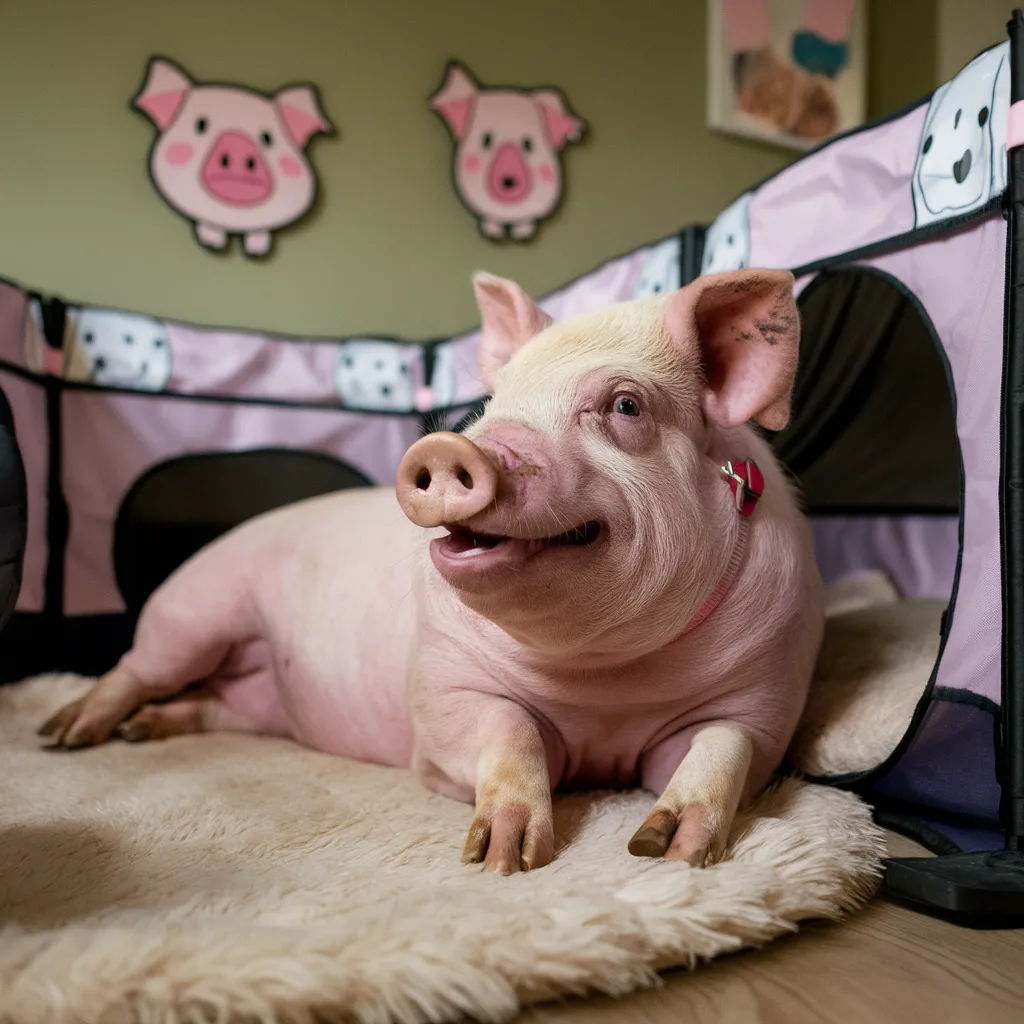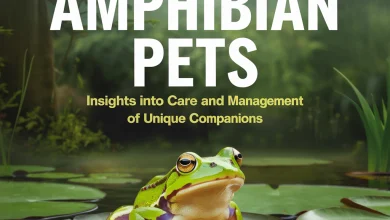The Pink-tastic World of Pet Pigs: A Guide to Keeping Pigs as Pets

Pigs are intelligent, social, and surprisingly affectionate animals that can make wonderful pets. With their playful personalities and endearing snorts, pigs can bring a unique kind of joy to your home. If you’re considering adding a pig to your family, here’s everything you need to know about having pigs as pets and ensuring they lead happy, healthy lives in your care.
Why Pigs Make Great Pets
1. Intelligent and Curious
Pigs are highly intelligent animals, often compared to dogs in terms of their intelligence. They are curious by nature and love to explore their surroundings, making them entertaining and engaging pets.
2. Affectionate and Social
Pigs are social creatures that form strong bonds with their human caregivers. They enjoy being petted, scratched, and even cuddled, and will often seek out human companionship.
3. Clean and Odorless
Contrary to popular belief, pigs are actually quite clean animals. They instinctively designate a specific area of their living space for their bathroom needs, making them easy to house train.
4. Useful and Eco-Friendly
Pigs can also be useful around the homestead. They can help clear brush and weeds, produce manure for fertilizing gardens, and even provide meat if that is your goal. Plus, they are eco-friendly, as they can help reduce food waste by eating scraps and leftovers.
Choosing the Right Pig
There are several breeds of pigs that are suitable for pets, each with its own unique characteristics and care requirements. Some popular breeds include:
- Pot-bellied Pig: Pot-bellied pigs are small, sturdy pigs with a friendly disposition. They are well-suited for indoor living and make excellent pets for families.
- Juliana Pig: Juliana pigs are another popular breed for pets. They are smaller than pot-bellied pigs and are known for their intelligence and playful nature.
- KuneKune Pig: KuneKune pigs are a gentle, docile breed that originated in New Zealand. They are known for their friendly demeanor and love of human interaction.
Setting Up a Pig-Friendly Environment
1. Shelter
Provide a sturdy shelter for your pig to protect them from the elements. The shelter should be well-ventilated and insulated, with plenty of bedding for warmth and comfort.
2. Fencing
Pigs are strong and curious animals that require secure fencing to keep them contained. Use fencing that is at least 3-4 feet tall and buried underground to prevent digging.
3. Feeding and Watering
Provide your pig with a balanced diet of pig pellets, fresh fruits, vegetables, and hay. Ensure they have access to clean, fresh water at all times.
4. Enrichment
Pigs are intelligent animals that need mental stimulation to prevent boredom. Provide them with toys, such as balls and ropes, and opportunities to root and explore their environment.
Daily Care and Maintenance
1. Grooming
Regular grooming is important for your pig’s health and well-being. Brush their coat regularly to remove dirt and debris, and trim their hooves as needed.
2. Health Check
Monitor your pig’s health closely and watch for signs of illness, such as changes in appetite, behavior, or droppings. Regular check-ups with a veterinarian experienced in pig care are also recommended.
3. Social Interaction
Pigs are social animals that thrive on interaction with their human and pig companions. Spend time with your pig every day, talking to them, offering treats, and engaging in playtime to strengthen your bond.
4. Training and Bonding
Pigs can be trained to perform simple tricks and behaviors, which can be both fun and mentally stimulating for them. Positive reinforcement techniques work best, as pigs respond well to praise and rewards.
Fun Facts About Pigs
- Smart Swine: Pigs are considered one of the smartest domesticated animals, often outperforming dogs in intelligence tests.
- Omnivorous Eaters: Pigs are omnivores, meaning they eat both plants and animals. In the wild, pigs will eat a variety of foods, including roots, fruits, insects, and even small mammals.
- Excellent Noses: Pigs have an exceptional sense of smell, which they use to find food and detect danger. Their snouts are equipped with a large number of olfactory receptors, making them highly sensitive to scents.
Conclusion
Pigs are delightful and affectionate animals that can bring joy and companionship to your home. By providing them with a safe and stimulating environment, a healthy diet, and plenty of social interaction, you can ensure that your pig lives a happy and fulfilling life as part of your family. Embrace the unique charm of pigs and enjoy the special bond that comes from sharing your life with these wonderful creatures.



